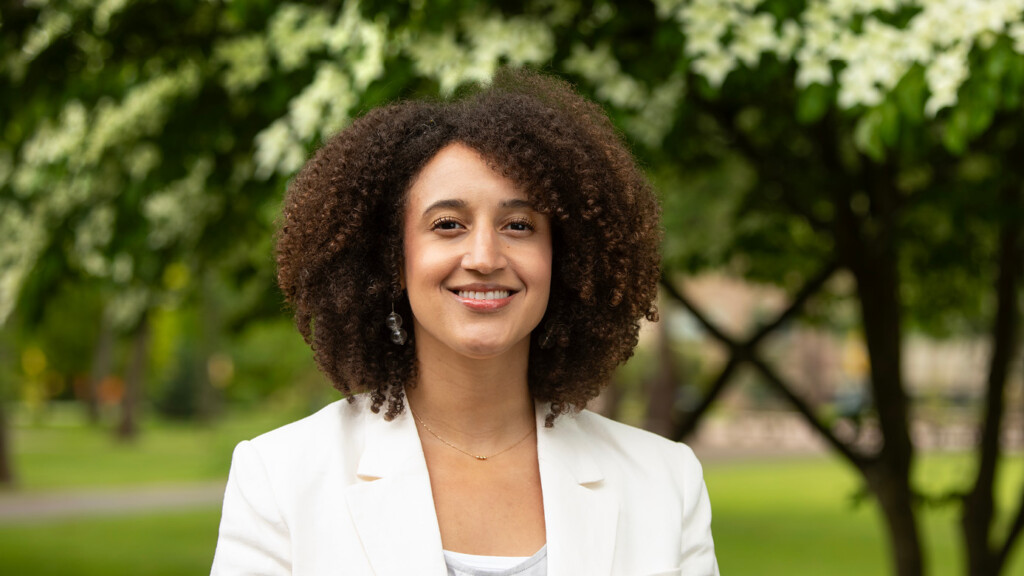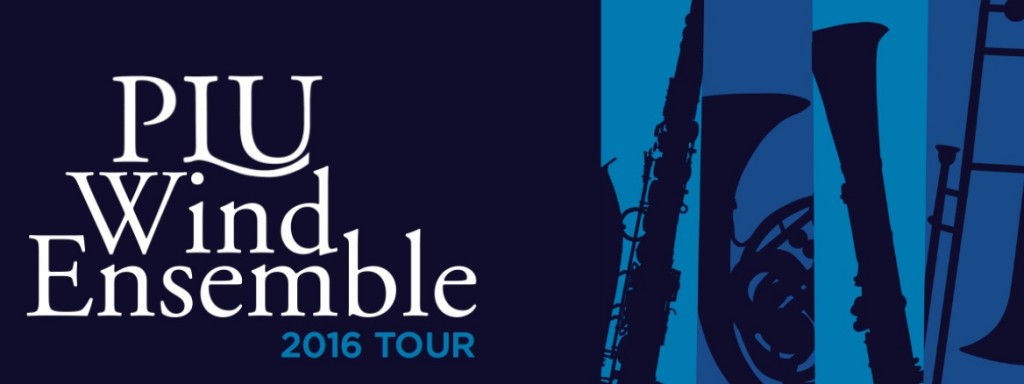Page 37 • (606 results in 0.013 seconds)
-

TACOMA, Wash. (Aug. 31, 2015)—Pacific Lutheran University has been closely connected to the Scandinavian world—and to the local Scandinavian community—since its founding by Norwegian Bjug Harstad in 1890. These days, PLU’s Nordic roots are reflected across campus: in building names, artwork, Scandinavian Area Studies programs…
Ward has had a longtime working relationship with the Nordic Heritage Museum, which welcomed the opportunity to commemorate and celebrate PLU, since it’s seen as a cornerstone of the Scandinavian community in the Pacific Northwest. Scandinavian immigrants to North American brought with them the core values of their home countries, including a deep appreciation for education, so establishing schools was a top priority for Nordic communities across the United States, Ward said. The exhibition, then
-

On November 18, Pacific Lutheran University’s Campus Ministry and Center for Graduate and Continuing Education will be co-hosting a virtual edition of The People’s Gathering, a dialogue-based event series focusing in-depth on the topic of race. The People’s Gathering is a professional and personal development…
Washington’s 7th District, which encompasses most of Seattle and its surrounding areas. She is the first South Asian American woman elected to the U.S. House of Representatives and one of only 14 naturalized citizens currently serving in the United States Congress. “If you want to prepare people to engage in real talk now, the People’s Gathering is the place to be,” says Dr. Karen Johnson, equity and inclusion administrator for the Washington State Department of Corrections. “Our agency looks forward to
-

Shalita Myrick, Pacific Lutheran University’s new chief operating officer and vice president for administrative services, has one major takeaway after completing her first week on the job. “This is the most open and welcoming community I’ve ever been a part of,” she says. Throughout the…
collaborator on the president’s and executive councils. Myrick holds a master’s degree in facilities management from The University of Texas at San Antonio and a bachelor’s degree in political science from Spelman College. She is also a graduate of the Los Angeles African American Women’s Public Policy Institute and serves the International Facilities Management Association’s Academic Facilities Council as the chair for young professionals. Myrick succeeds Kate Boyle, who served as PLU’s Interim COO after
-
Poster 1 Poster 2 Poster 3 Poster 4 [Exhibit has closed.] Mortvedt Library is hosting a new popup exhibition from the National Archives , Rightfully Hers, “commemorating the 100th anniversary of the ratification of the 19 th Amendment. Rightfully Hers explores the history of the…
registration, cutbacks on early voting, and strict voter identification requirements” (source: American Civil Liberties Union https://www.aclu.org/issues/voting-rights). While the physical exhibit resides in the Mortvedt Library lobby, here on the web we’ve added links to Open Access resources on the topics of 15th Amendment (Black men’s right to vote), 19th Amendment (White women’s right to vote), and the Voting Rights Act of 1965 (securing Black, Latinx, and Asian women’s right to vote and Indigenous
-
The Amgen Scholars Program at UT Southwestern is designed to provide an intensive research experience to outstanding undergraduates who have the goal of pursuing a research intensive career (Ph.D. or M.D./Ph.D.) in the field of biomedical science. Under the mentorship of our 340 Division of Basic…
Program Symposium in July. Amgen Scholars will be housed in a Marriott Residence Inn in close proximity to our campus. Sincere thanks to the Amgen Foundation for the generous support of the UT Southwestern Amgen Scholars program. UT Southwestern values the benefits of having a diverse scientific population. We encourage applications from backgrounds historically underrepresented in the sciences (African-American, Hispanic, Native Americans and Pacific Islanders), as well as first generation and
-

The NCAA announced selections for the 2022 NCAA Division III Outdoor Track & Field Championships with Pacific Lutheran University sending six student-athletes to the meet this week at the SPIRE Institute in Geneva, Ohio. Sprinter Bailey Forsyth qualifies in two events and is joined by…
nation with a chuck of 199′ 11″ at the Westmont Classic on March 26. Chaffin makes his debut on Thursday at 2:45 p.m. (Pacific). Ava Nelson rounds out the Lute competitors, making her third trip to nationals in the javelin. The senior owns the nation’s top throw, uncorking a toss of 150′ 3″ to win her third consecutive league title at the NWC Championships. Nelson is a two-time All-American, finishing seventh at both the 2021 and 2019 NCAA Championships. Nelson is additionally no stranger to the
-
Fairy high jinks, true love and bewitching spells will play out on stage at the Karen Hille Phillips Center for the Performing Arts January 23-26 when PLU’s Opera series presents Benjamin Britten’s, A Midsummer Night’s Dream. Originally premiered in 1960 at the Aldeburgh Festival, Britten’s evocative…
Anderson University Center and on the phone at 253-535-7411. Tickets are $15 General Admission, $10 Senior Citizens (55+) and PLU Alumni, and $5 for PLU community, students, and 18 and under. Shows on January 23-25 start at 8pm with a final matinee at 3pm on Sunday, January 26. Read Previous PLU choral conductor winner of The American Prize for 2013 Read Next Angela Meade Vocal Performance Scholarship Underway LATEST POSTS PLU’s Director of Jazz Studies, Cassio Vianna, receives grant from the City of
-

The Pacific Lutheran University Wind Ensemble is traveling across the mountains to eastern Washington to perform in various venues this March. The 50-student ensemble will perform in Yakima, Spokane, Richland, Pasco and Portland, Oregon, and will finish with a homecoming concert in Lagerquist Concert Hall…
Concert Hall Read Previous PLU to present US premiere of St. Matthew Passion as part of larger “Passion Week” event Read Next Pacific Lutheran University Choirs and Orchestra close “Passion Week” with North American premiere LATEST POSTS PLU’s Director of Jazz Studies, Cassio Vianna, receives grant from the City of Tacoma to write and perform genre-bending composition April 18, 2024 PLU Music Announces Inaugural Paul Fritts Endowed Chair in Organ Studies and Performance January 29, 2024 PLU’s
-

The Jazz Education Network Conference hosts thousands or people from around the globe every year, connecting jazz beginners, professionals, scholars and educators, and industry experts. In 2022, following safety guidelines, the conference was held in Dallas, Texas in early January. Dr. Cassio Vianna was invited…
.” Dr. Vianna was invited to give a clinic in the composition/arranging category. Vianna’s clinic, “Brazilian Choro for Jazz Big Band: A Guide for Jazz Composers and Band Directors,” covered an old Brazilian instrumental style that is becoming more popular among American jazz musicians in recent years. Due to a lack of quality material for jazz big band in the style, Vianna shared his experience writing his own arrangements and helping students learn this exciting music style. Faculty participation
-
English professor receives prestigious award Assistant Professor of English Rona Kaufman was named a recipient of a 2008 Graves Award in the Humanities. The award is given every two years to eight to 10 faculty members from private, liberal-arts colleges in California, Washington and Oregon.…
her new culture. “This will give me more practice, more experience and practice writing myself,” Kaufman said. “I think it’s really important for teachers to be doing what they are asking their student to do.” The Graves award is administered under the auspices of the American Council of Learned Societies by Pomona College on behalf of benefactors Arnold L. and Lois S. Graves. Read Previous Wang Center honors China Partners Network Read Next Senior attends national seminar, gains insight COMMENTS
Do you have any feedback for us? If so, feel free to use our Feedback Form.


